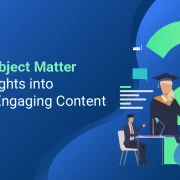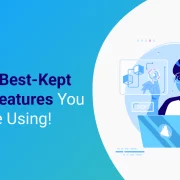
Revolutionize K-12 Assessment with Cutting-Edge Solutions
Summary
Learn how cutting-edge solutions are revolutionizing K-12 assessment, providing educators with innovative tools to evaluate student performance, track progress, and enhance learning outcomes.
A Statista survey revealed that most teachers in the United States used K-12 assessments to help students practice and reinforce what they had learned.
Developing K-12 assessment solutions is thus important as it is a means of evaluating students’ knowledge, skills, and abilities from kindergarten through grade 12.
K-12 assessment includes a variety of methods to measure student learning, including standardized tests, classroom assessments, performance tasks, and portfolios.
The goal of K-12 assessment is to determine what students can do, identify areas where they need additional support, and help educators and policymakers make decisions about curriculum, instruction, and resources.
The right K-12 assessment solutions provide a way to track student progress over time, evaluate the effectiveness of teaching practices, and ensure that all students receive a high-quality education.
Present-Day K-12 Assessment
In present-day K-12 education, standardized tests are a common assessment form. These assessments have remained largely unchanged, often taking the form of end-of-unit tests or immediate quizzes through digital platforms.
Post the COVID-19 pandemic, many schools worldwide have shifted to remote or hybrid learning. Now, educators are reconsidering the most effective methods for evaluating students’ knowledge and comprehension. They are trying to create learning solutions that can provide students with lifelong learning opportunities.
Online learning presents numerous challenges, including the potential for students to search for answers on the internet. Additionally, teachers may find it difficult to gauge students’ understanding and engagement when limited to a small square on a screen.
This is all the more reason to re-evaluate how student learning is assessed. Educators should move away from focusing merely on grades to placing greater emphasis on the learning process at large.
Overall, present-day K-12 assessment is a complex and evolving landscape, with various assessment methods and technologies used to measure student learning and inform instructional decisions.
Why Should K-12 Assessments be Revolutionized?
Over the past decade, there has been a significant shift in K-12 education statistics. It is estimated that, in 2023, over 5 billion people will have access to the internet.
This indicates a need to revolutionize K-12 assessment solutions. Here’s how this will help:
- To Measure All-Round Learning: Traditional assessments may not fully capture the range of skills and knowledge that students need to succeed in the 21st century, such as critical thinking, problem-solving, and collaboration.
- To Become Engaging Enough: Traditional assessment methods, such as standardized tests, can be boring and stressful for students. This can lead to disengagement and a lack of motivation, ultimately impacting student performance.
- To be More Personalized and Timely: Traditional assessments often take a long time to administer and score, and feedback may not be provided promptly. This can make it difficult for teachers to adjust their instruction to meet the needs of individual students.
- To be Innovative and Practical Useful: In a rapidly changing world, students need to develop skills and knowledge that will enable them to succeed. Assessment methods that emphasize innovation and adaptability can help prepare students for the challenges they will face in the future.
Lately, online assessments are becoming increasingly common, providing greater flexibility and efficiency in administering tests and scoring student responses.
Adaptive assessments, which use algorithms to adjust the difficulty of questions based on a student’s responses, provide more personalized and accurate measures of student abilities.
Cutting-Edge Solutions to Revolutionize K-12 Assessment
To create effective assessment systems for the future, states are working with newer design elements in the existing curriculum.
Here are some cutting-edge solutions that are being used to revolutionize K-12 assessment:
- Adaptive Assessments: Adaptive assessments use algorithms to dynamically adjust the difficulty level of questions based on a student’s responses. This allows for more accurate measurement of student abilities and more efficient use of instructional time.
- Game-Based Assessments: Game-based assessments use gamification to engage students and create a fun and interactive learning environment. They can be used to assess a wide range of skills, including critical thinking, problem-solving, and collaboration.
- Performance Assessments: Performance assessments allow students to demonstrate their knowledge and skills in a real-world context. They can be used to assess a wide range of skills, including communication, creativity, and collaboration.
Challenges and What State Governments Can Do
Despite their best efforts to revolutionize K-12 assessments, educators and innovators continue to face issues on several fronts. Some of the main challenges are as follows:
1. Limited Resources
Educators argue that there is little to no time for planning and implementing new education systems. Also, a high degree of cultural and societal divide limits resource management and movement.
State governments can respond to the issue by reaching beyond the limits of federal law and developing innovative assessment techniques in non-federal subjects.
For instance, they can advance novel approaches to formative assessment or change state graduation requirements. These new methods can help educators develop a new assessment paradigm.
2. The Cost Factor
Building high-quality assessments is an expensive proposition and will require states to make large investments.
While the COVID-19 pandemic disrupted the entire education process, it also opened other doors. It led to state governments offering federal relief packages and also gave rise to increased funding to craft new educational assessment techniques.
3. Disruption of Current Education Practices
Policymakers fear that moving too far away from traditional assessment systems will disrupt the learning system as a whole.
Besides, a lack of web accessibility can pose other major challenges. Not everyone has ready access to technology, and this may lead to slower adoption of revolutionary technology.
The post-pandemic era calls for richer educational technology with a wider reach and advanced assessment models. This creates an opportunity for state governments and educational institutions to look beyond standardized techniques and develop more effective assessment measures to improve learning for the student community as a whole.
Revolutionizing K-12 Assessments: A Joint Effort
Recognizing the urgent need to revolutionize current K-12 assessments, several states across the United States are now trying to implement a range of practical assessment practices.
While the process has already been set into motion, a joint effort from all the departments concerned will be required to be able to see concrete results.
The following is what states could do to create an adaptive environment:
- The members of advisory committees and various stakeholders should discuss a vision to create advanced learning management systems with more effective and innovative assignment designs.
- Professional educators should suggest learning initiatives and ways to implement high-quality assessments.
- State governments should come together to develop newer solutions to challenge current assessment systems.
Conclusion
In conclusion, K-12 assessment solutions are an essential tool for measuring student learning and progress in various subjects. Technology has significantly improved the assessment process, making it more efficient and reliable.
Ultimately, assessment solutions play a crucial role in identifying areas where students need improvement and helping educators provide targeted support to ensure academic success.
Explore the revolutionary K-12 content learning platform from Hurix to unlock a new realm of knowledge and empower K-12 students by giving them a holistic learning experience.

Performance, Results, Growth, and Life-Long Learning define my professional life. I am passionate about making workplace learning planful, purposeful, and impactful. I take pride in partnering with clients and bringing them the best in learning design and creating solutions that address business challenges.




